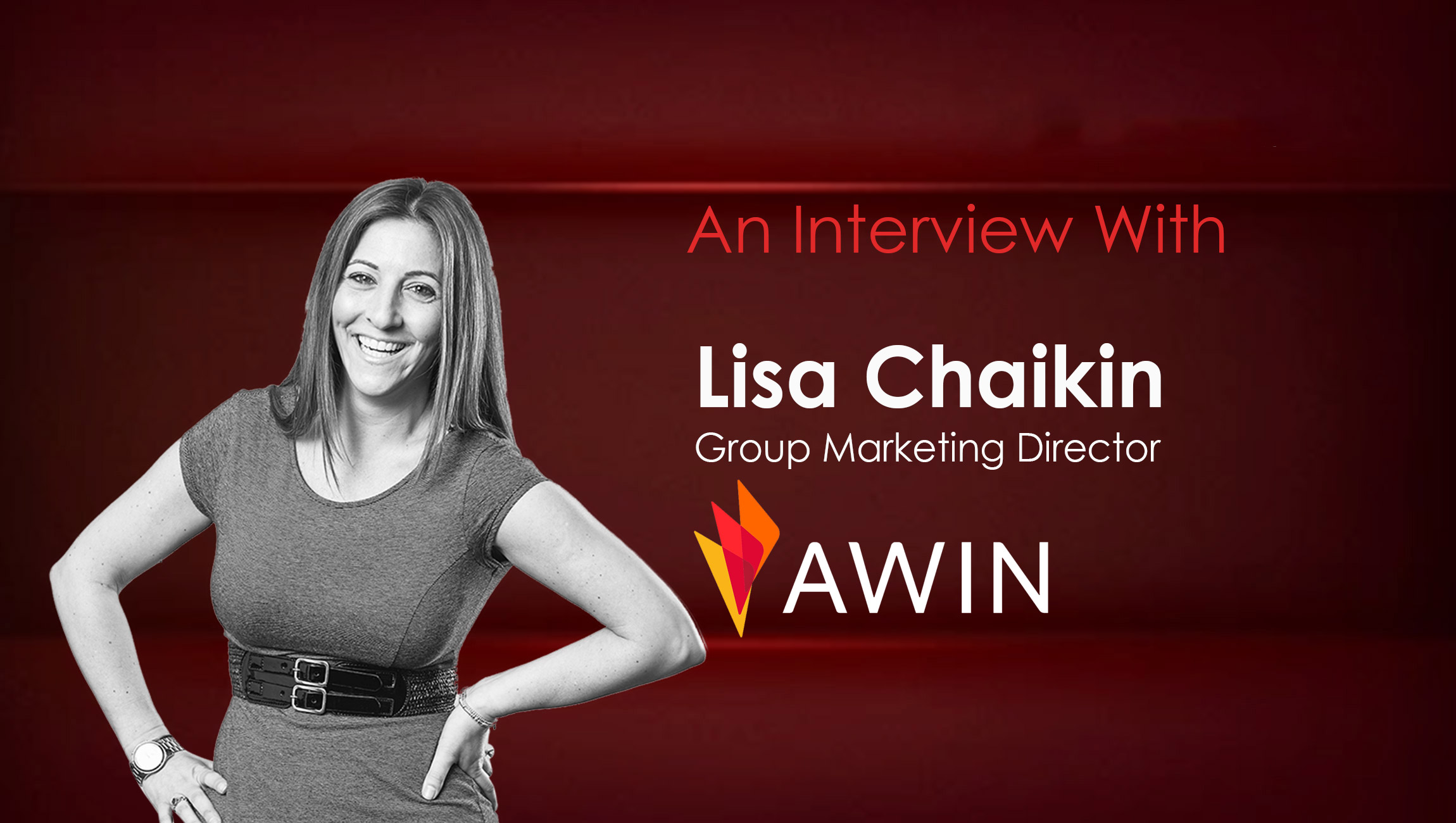Lisa Chaikin, Group Marketing Director at Awin talks about the benefits and importance of affiliate marketing channels:
________
Welcome to this MarTech Series chat, Lisa, tell us about yourself and more about Awin as a platform… as a group marketing director for the brand, take us through your key areas of responsibility…
You could say I’m somewhat of an Awin veteran, having joined Affiliate Window back in 2009 when we were a grassroots, UK business. As the Group Marketing Director, I’ve had the pleasure of being part of and helping drive Awin’s phenomenal growth journey over the past 14 years, from 88 employees in the UK to over 1,400 worldwide. Something I’m incredibly proud of.
Awin has been a mainstay of the affiliate marketing industry since 2000, initially as Affiliate Window (UK and US) and zanox (Europe and South America) before globally rebranding to Awin in 2017. That year, we acquired one of North America’s largest affiliate platforms, ShareASale, to become the Awin US Group and further expand our partnership opportunities and technology offerings in the US.
We’ve evolved into a marketing technology platform which provides an open marketplace for businesses to discover, manage and measure any kind of marketing partnership. From influencers to mass media houses, cashback and discount sites to B2B partners, advertisers selling products and services online can use Awin’s platform to easily coordinate these valuable partnerships.
We work with household brand names including Aviva, Boohoo, BT, M&S and Vodafone, and count Buzzfeed, Future, Forbes, Klarna, and Revolut as some of the innovative partners on our platform. The Awin Group generated £12 billion in revenue for its advertisers and £920 million for its affiliate partners last year. Advertisers earned a £14 return for every £1 they invested in these partnerships via Awin, as well as expanding their customer reach and strengthening their brand.
In my role, I oversee Awin’s global marketing department consisting of +35 team members across all marketing disciplines in ten countries. I have overall responsibility for planning, developing and implementing marketing strategies, communications and PR activities, both internally and externally for the Group. This includes tailored, local strategies for all global markets. Or, as I try to explain to my five year old daughter “experimenting with different activities to get as many people as possible to know who my company is and why it can help their business to be more successful and make more money.”
How are you seeing affiliate marketing gaining more prominence in the B2B sphere? A few top trends that will share the segment in 2023 and beyond?
Evolution of the affiliate channel: Over the past five to ten years, the definition and scope of affiliate marketing has expanded. From a channel that was traditionally made up of loyalty and discount partners (who still play an important role in the channel today) that existed at the last pre-purchase touchpoint in the customer journey, affiliate marketing is now an ecosystem of diverse partners that help brands to engage customers at every point in their purchase journey (traditional affiliates, brand-to-brand, tech partners, influencer partnerships, fintech, mass media, etc.)
Popularity during the pandemic: As brands had to reevaluate investment and budget, and as consumer spending habits shifted, the value of the affiliate channel became increasingly noticed by the wider digital marketing industry (greater control over where spend is allocated, low-risk, pay-on-performance, partner diversity) and demanded a larger chunk of marketing budgets. This trend has continued since 2020 with record industry growth (see: PMA Releases 2022 Performance Marketing Industry Study – The PMA – affiliate marketing investment reaches $9.1bn in 2021).
Mutually beneficial relationships: The growth of the brand-to-brand partnership model which allows complementary brands to partner and tap into one another’s customer base, increase brand affinity and loyalty and achieve incremental revenue growth.
Other key reasons for affiliate channel growth as noted in the above PMA study include:
- Increased recognition of affiliate traffic quality among senior marketing executives
- Expanding acceptance of pay-for-performance buying models among publishers
- Digital channel growth due to the effects of the COVID-19 pandemic on buyer behaviours
- Strong ROAS for affiliate marketing versus other digital marketing channels
- Increased channel adoption among new industries, including Auto, CPG, and B2B
- Growth in mobile marketing spending and improved mobile sales tracking in the channel
Marketing Technology News: MarTech Interview with Linda Shea, Executive Vice President Business Advisory Services at Big Village
How marketers/brands considering affiliate marketing programs for the first time: what thoughts would you share with them as they set into implementation stage?
- Choose the right partners for your products/services and customer type. By exploring the scope and variety of partners available to you through the affiliate channel, you can map your partnerships against your sales funnel for enhanced performance.
- Control what and where you invest your marketing budget. Take advantage of the sophisticated tracking suites on offer by your affiliate platform to get a holistic view of which partners are driving sales, where customers are being inspired to purchase and to accurately measure which areas of your affiliate programme deserve a bigger chunk of budget.
- Create the partnership ecosystem that suits your business size, sector, budget and goals once you’ve taken the above steps. The beauty of the affiliate channel is its flexibility and configurability, and that’s what brands should cease if they want to scale their affiliate programme.
Can you talk about the growing impact of martech to the affiliate marketing ecosystem and how better tech and processes together can derive better output?
The affiliate channel empowers brands to be flexible, efficient and cost-effective – some examples of this include:
- Increased automation within affiliate platforms means less time-consuming manual processes, allowing marketers to spend more much-needed time finding and managing new partners.
- Increased integrations and partner APIs means brands can easily plug-and-play into a diverse range of partners (offering for example AI-personalisation, intelligent product bundles, retargeting) without lengthy development or integration time and costs, all while continuing to track, measure and pay for all activity through one affiliate programme dashboard.
- Mobile marketing and app tracking mean more sales are captured and brands can optimise their strategies across website, app and social – again, while continuing to capture this activity through their affiliate platform’s dashboard.
Marketing Technology News: Common B2B Whitepaper Mistakes Made by Content Marketers
What do you feel about the future of the B2B marketing and martech industry?
Excited! I really believe CMOs and senior decision-makers will continue to increasingly recognise the value of affiliate partnerships as a marketing channel that gives them back the choice, control and customisation they don’t have with others. These key components are needed now more than ever to be able to navigate both shifts in consumer behaviour as well as the current economic crisis. The channel will continue to embrace new publisher models that serve to cater to brands’ goals – Awin looks forward to welcoming these partners and helping brands build their own profitable marketing ecosystems through our highly customisable platform.
With twenty years of experience, the Awin platform offers a global community of people, technology and business intelligence insights. No matter what type of partner, level of service, or tools yourbusiness needs, Awin provides solutions to drive sustainable growth
Lisa Chaikin is Group Marketing Director at Awin
Missed The Latest Episode of The SalesStar Podcast? Have a quick listen here!
Episode 148: Core Sales Strategy Best Practices with Stephanie Vandenberg, GM and SVP Revenue & Growth at Verve Group
Episode 147: Driving Better Customer Revenue Journeys with Holly Procter, SVP of Global Sales at Clari
Episode 146: The Bazaarvoice Growth Story with Zarina Stanford, CMO at Bazaarvoice












